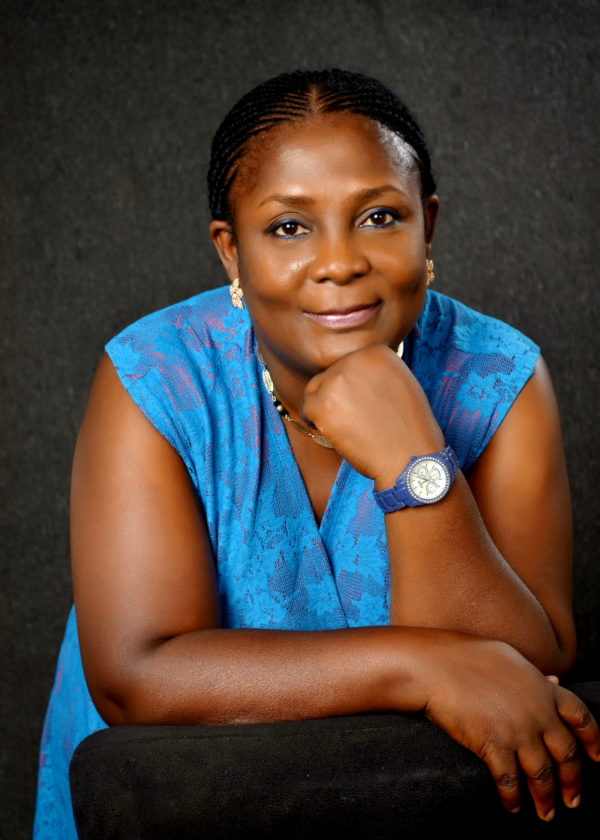
Toyin Adewale-Gabriel is a Nigerian poet, short story writer, literary critic and activist. She was cofounder and coordinator for several years of the Association of Women Writers of Nigeria. Her works include: Naked Testimonies (1995), Die Aromaforscherin (1998), Flackernde Kerzen (1999), and 16 Short Stories by Nigerian Women Writers (2005), and Bitter Chocolate (2010). She has won awards for her poetry and short fiction. She is the editor of 25 New Nigerian Poets (2000) and co-editor of “Inkwells” and Breaking the Silence: an anthology of short stories (1996).
Umezurike
I was struck by the imagery: “of chicken thighs unloved by excess” in “Explorers of Aromas,” even as the poem evokes images of dissolution, abjection and decay. How did you come about that imagery? What defines a poem for you? How do you go about writing a poem?
Adewale-Gabriel
The imagery is right from a typical Lagos ‘owambe’ party, where a lot goes to waste and you find the hungry wading through the leftovers. I build my poems around evocative imagery, pictures that convey meaning in the mind’s eye. I really don’t have a fixed process for writing poetry. Different poems travel different routes.
Umezurike
In “Her Three Days”, the poet persona talks about disappointment, having prepared lavishly and in excitement for her “dashing stag” whom she finds out is “[l]ost in the loins of a new enticement.” She then poses a question, apparently in resignation: “what is man that I’m mindful of him?” I find echoes of the Psalms and Songs of Solomon in the poem, and “Ruth” is a poetic recreation of the biblical story of Naomi and her daughter-in-law. In reflecting on “Impact,” I would like to ask: to what extent does the Bible provide you with inspiration for your poetry? Is faith something you turn to for insight into dealing with personal issues?
Adewale-Gabriel
I am a woman of faith and l find the Bible inspirational for living and writing.
Umezurike
Could you describe what the experience was like for you as an anthologist, having edited three remarkable anthologies? What challenges did you face and how did you deal with them? Is there any story or issues worth sharing about the process of assembling the writers? And do you still maintain any publishing relationship with Ishmael Reed Publishing Company?
Adewale-Gabriel
As a young woman in Nigerian Literary Circles in the mid-nineties, l was struck by the absence of women voices, after the wave of Mabel Segun and Molara Ogundipe-Leslie whom we had studied in school. That inspired the Breaking the Silence project which l co-edited with Omowunmi Segun. I was able to get funding from the Heinrich Boll Foundation for publishing the book. We also took the women writers in the book on a five-city book tour. It was fun getting on the road to promote our work. Fundraising was work. I learnt how to write proposals, how to keep good records and account to the donor agency for all the money spent in addition to ensuring the quality of the material. Organising the book tour, putting together contacts, venues, travel and other logistics was a lot of work, but I was young and passionate, so it didn’t feel hard. Breaking the Silence did well and was used in universities as a text for women writing. I met Ismael Reed at a USAID event. We got talking. He is a great supporter of young people. I shared my interest in publishing two more anthologies and he put his money and his publishing organization behind 25 New Nigerian Poets and 16 Nigerian Women Short Stories. He’s actually a small, not-for-profit publisher. All the writers published in the three anthologies were able to get some honorarium for their work. There were key issues to address in the anthologies, I tried to present the most interesting writers at the time, keeping in mind regional balance to ensure the books were representative of the country. It was a challenge getting women writers from the North of Nigeria and I had to go the extra mile on the material I got.
Umezurike
You have worked hard in advancing women`s writing in Nigeria. In your conversation with Nnorom Azuonye sometime in 2003, you described yourself as a woman writer. What does it mean to be a woman writer, especially in Nigeria? In this age of keen feminist consciousness, do you still define yourself same way? Or would you rather be described as a feminist?
Adewale-Gabriel
People are always looking for labels, boxes, compartments, a so-called easier way of dissecting what you write and I think in that process, they miss out on the real wealth of engaging your imagination. Having said that, I am a woman who is writing from my varied experiences (as a citizen of the world, Nigerian, daughter, sister, mother, wife, and mentor) and those of other women in my society. I see myself as a voice for woman, child and man. I advocate for woman rights and human rights. I am not inferior to anyone and I never hesitate to take my place. How does that describe me?
Umezurike
In “Safari”, you seem to argue against art for art’s sake:
When I read my poems,
dripping with fire and gutters,
they asked me, “don’t you
write about trees and constellations?”
And I said, in this land we love with pain
even the trees feel like whips.
Umezurike
Poetry is a mirror of its times, and the poetry of your peers raged at the oppressive military government of the 90s. Today we live in a democracy, yet poor leadership still assails Nigerians. Does poetry have much to say in this period? Would you say that contemporary Nigerian poetry represents a shift in politics – or is it “shop[ing] in trivia street”? What do you think is the responsibility of a poet to the nation?
Adewale-Gabriel
I do not see how it is possible to live in Nigeria or be Nigerian and write art for art’s sake. I think a poet should be the voice of her society. It has been so from ancient times. Contemporary Nigerian poetry still reflects the pulse of the society, the disappointment with our poor leadership and a voice for the common man. There is a lot more innovation now, the use of multimedia, fusing music and drama, a marriage of the arts. Admirable efforts to actually make a living from writing.
Umezurike
“Her Three Days,” “Trial” and other poems deal with betrayal and heartbreak, figuring men as unfaithful and untrustworthy. In “A Thawing”, the poet urges the male partner to “Run baby run/dive into a nail bed.” Is there something to be said about dominant masculinity and “shrivelled penises”? What other themes fascinate you?
Adewale-Gabriel
It is not so much about dominant masculinity. It’s more about respect and value for the humanity of the other. I am interested in earth, wind and sky. I am also interested in human capital development, the need to invest in young people, especially in a country like Nigeria where 50% of the population is youth.
Umezurike
You have two works published in German, Die Aromaforscherin (1998), Flackernde Kerzen (1999). What were the constraints you faced? Did you write the work originally in German, or you simply had them translated? Are there plans to have them published in English?
Adewale-Gabriel
My books in German translation were outcomes of serendipity. I had a six months’ writers’ residency at Akademie Schloss Solitude in Stuttgart. The Akademie publishes six books from its fellows at the end of each year. I was blessed to have Die Aromaforscherin published this way. While in Germany, l also met the publishers of Schmettarling Verlag, who were interested in publishing Flackernde Kerzen (Bitter Chocolate). It’s been published in English by Mallory Publishers based in the UK.
Umezurike
In “Olayimika,” the elation that comes with childbirth is tangible. In this poem, you seem to undo the social prestige accorded male children, by having the daughter declare that, “I am the consolation/born for the day of affliction.” How important a theme is motherhood in your poetry? Can you tell us about your relation to this poem?
Adewale-Gabriel
“Olayimika” is a celebration of the girl-child, how she becomes the nurturer of the homestead as it so very often happens. Many men these days long to have daughters, they are the comforters of their old age. “Olayimika” was inspired by events surrounding the passing of my grandmother.
Umezurike
Could you tell us what inspired “Chords I” and “Chords 11”? Reading the following poem, the image that comes to mind is an anointing, a purification. Why did you choose this form? What decides the form a poem will take? What do you wish to communicate through this form?
Give me Thaw me
The milk. On fire.
Dip me Root me
In butter. In word.
Pour me Fetch me
The dew. A sword.
Wash me in oil.
Adewale-Gabriel
I was working with the poems as visual imagery, how it impacts the reader on paper and how it can be read in different directions with various layers of meaning, reflecting the many-sidedness, the enigma that an individual is. I think, often times, the poem decides how it wants to take life. Sometimes, you try to develop it in a certain direction and you see that’s not working, so you just let it be.
Umezurike
Let me paraphrase Edwigde Danaticat here, from an essay she wrote on WLT 2019. She says that sometimes we cannot fully move the world, but we can begin by bearing witness. How has poetry helped you to bear witness to “lacerations/…wounds” as well as injustices both private and public?
Adewale-Gabriel
This is perhaps, our most important job, to bear witness that we too were here. Poetry is always my best friend, a ready platform, when l need to testify for myself and society.
Umezurike
Can you describe your experience of writing prose, seeing that you are more known as a poet than a fiction writer? What struggles, if any, do you face with working in these different genres? Are there issues of formal technicalities, you wouldn’t mind speaking about? Do you approach both genres differently, say, in terms of the writing process?
Adewale-Gabriel
I started out writing poetry and it’s the bedrock on which my work rests. So yes, my primary identity will always be hinged on that. For prose, you need to do more research. Obviously, it’s not as spontaneous as poetry can be, at least for me. You need to do character development, get their voices right, immerse yourself in the context of the story, invoke the atmosphere and engage the reader to stay with you. A writer needs to be well read. Alertness and an eye for detail are essential in your toolkit.
Umezurike
Which poets have influenced you the most? Do you have any favourite poets?
Adewale-Gabriel
I love Mary Oliver and I am partial to Russian and Latin-American poetry. I was into Sylvia Plath when l was much younger.
Umezurike
You seem not to have published any literary work of late, if I may say, except short fiction: Bitter Chocolate. Is there any reason for this? Finally, what are you working on next?
Adewale-Gabriel
2019 will bring a book of poetry.
*****************
About the Interviewer
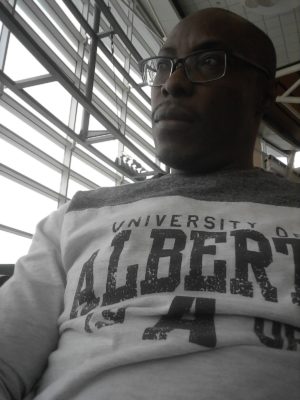 Uchechukwu Peter Umezurike is a PhD candidate and Vanier Scholar at the department of English and Film Studies, University of Alberta. His research interests include postcolonial literatures, print culture, gender and sexuality studies. An Alumnus of the International Writing Program (USA), his work has appeared in several print anthologies such as On Broken Wings, Dream Chasers, Migrations, African Roar 2011, Daughters of Eve and Other Stories, Work in Progress & Other Stories, A Generation Defining Itself (Vol. 8),Weaverbird Collection, New Nigerian Writing, Water Testament, Calvacade, Author Africa, and Camouflage, etc.
Uchechukwu Peter Umezurike is a PhD candidate and Vanier Scholar at the department of English and Film Studies, University of Alberta. His research interests include postcolonial literatures, print culture, gender and sexuality studies. An Alumnus of the International Writing Program (USA), his work has appeared in several print anthologies such as On Broken Wings, Dream Chasers, Migrations, African Roar 2011, Daughters of Eve and Other Stories, Work in Progress & Other Stories, A Generation Defining Itself (Vol. 8),Weaverbird Collection, New Nigerian Writing, Water Testament, Calvacade, Author Africa, and Camouflage, etc.


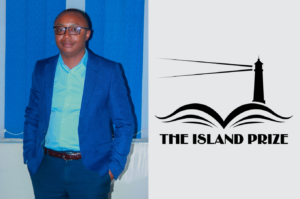


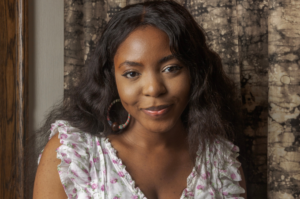
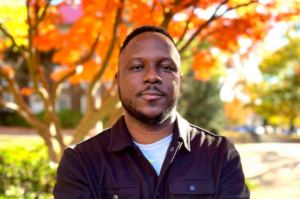


COMMENTS -
Reader Interactions